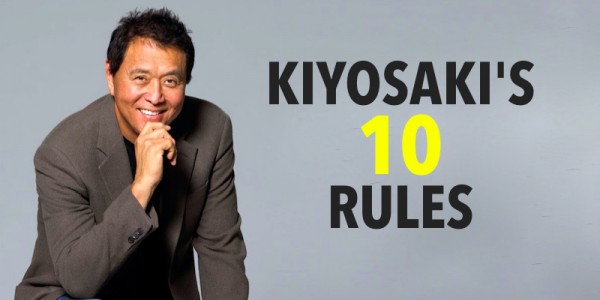With a net worth in excess of $66 billion, Amancio Ortega is the richest man in Europe and the wealthiest retailer in the world thanks to his control of the Spanish fashion behemoth Inditex. Ortega — who started out as a delivery boy for a local clothing store at 14 — turned from a small-town dress shop into one of the largest fashion empires on the planet.
Yet despite Ortega’s immense wealth, he lives humbly. The billionaire still eats lunch with his employees in the company cafeteria, and though he’s the richest person in the fashion industry, he sticks to a simple uniform of a white shirt and blue blazer.
What makes the Spanish multibillionaire so interesting isn’t the fact that he briefly topped Bill Gates as the richest man in the world–it’s his amazing rags-to-riches story, which can teach life lessons.
Here are the 10 success lessons from Amancio Ortega – “Wealthiest Man in Europe” for entrepreneurs,
1. Introverts can thrive as entrepreneurs
Most entrepreneurs are extroverts, but that is by no means necessary to succeed. Many great entrepreneurs are introverts and Amancio Ortega is one of them. Little is known about the retail conglomerate, because he makes a lot of effort to avoid having to talk to the press.
He once said: “You must appear three times in the newspapers: when you are born, when you get married, and when you die.” Don’t be discouraged if you aren’t the life of the party, because you can still run a profitable business.
2. Be humble and modest
It’s been reported that Ortega visits the same coffee shop every day, has lunch with his employees, and, despite being the man behind Zara, dresses modestly in the same blue blazer, white shirt, and gray pants.
Being successful in life doesn’t mean that you can’t still be humble and modest. In fact, having those traits can be extremely beneficial for both your professional and personal lives. Humility has been found to help us cope better with anxiety, become better leaders and workers, have more self-control, and be more willing to help others.
3. Don’t forget your roots
One of the most interesting things about Ortega is that he never really left home. He built the Zara empire in his hometown of A Coruña, Galicia, Spain. This is important, because being close to home helped Ortega remember his roots.
And that helped drive the success of Zara, according to Xabier R. Blanco, co-author of the book Amancio Ortega: From Zero to Zara. “Poverty clearly made him who he is,” says Blanco.
Also Read: Must Have 13 Entrepreneurs Tools
4. It’s never too late to be successful
Sometimes we are led to believe that you have to be successful at an early age, much like Steve Jobs or Mark Zuckerberg. But Ortega was almost 40 years old when he founded Zara.
While that’s not ancient by most standards, it’s not your typical twenty- or thirty something millionaire story. It’s refreshing to know that it’s never too late for you to achieve your dreams and ambitions like Ortega did.
5. Good things come to those who wait
It took a decade for Ortega to found Zara’s holding company Inditex and open his first shop. Today, Inditex is one of the world’s biggest fashion groups.
Even though 10 years may seem like an eternity when establishing a business, it clearly paid off. Being patient gives you the chance to wait, watch, and know when to act in all aspects of your life. Instead of acting inappropriately or irrationally, with patience you can step back, regroup, and make the best decision possible.
6. Remember what drives you
Around the age of 13, Ortega witnessed his mother’s getting rejected for credit at a grocery store. The realization of his family’s poverty was a driving force for Ortega. He left school immediately and began working so that he and his family would never be put in that situation again.
Sometimes we forget why we wake up every morning and sit in traffic for hours, or why we left a cushy job to launch a startup that is on the brink of failure. Remembering why you make those sacrifices is what forces us to achieve our goals and dreams.
7. You can still enjoy the finer things
Though humble and modest, Ortega is still able to enjoy himself. He rides horses, and even owns an equestrian center in Finisterre, Spain. He also owns an Audi A8 luxury sedan.
If you can afford that luxury item or vacation, and it’s something that you value, then you shouldn’t feel any guilt about spending that money. It’s OK to splurge every now and then, just like Ortega, because it can actually make you happy.
8. Keep marketing to a minimum
Zara cleverly uses its product range – which changes every fortnight or so to ensure it is always on top of the latest fashions – as a marketing vehicle. The constantly changing product line-up encourages customers to make repeat visits to stores, and research from the UK suggests customers visit 17 times a year compared to four or five times at other chains.
These repeat visits couples with prominent store placement allow Zara to rely on word-of-mouth marketing, rather than expensive brand campaigns.
9. Ethics appeal
Following the Haiti earthquake, Amancio Ortega’s Inditex sent two million euros of emergency reconstruction relief as cash, not clothes. Inditex is not only intelligent in its generosity abroad: in Spain, some stores’ employment practices make it possible for those with mental and physical disabilities to join the workforce.
10. Do it your way
You don’t always have to do what everyone else is doing. Ortega doesn’t have to eat lunch with his employees, but he chooses to have that connection. He opted not to have a big, corner office. Instead, he was on the floor with designers. And, according to economic historian Carlos Rodriguez Braun:
“Without any favourable conditions, in a sector that relies on invention yet restricts creativity, he decided to fight to the top relying on pure innovation. He found a great balance between quality and price, shortened the shelf life of his product by speeding up the design process, selected prime locations for his stores and extended their operating hours, and all of this was done with the goal of attracting the casual shopper. He made it all happen.”
Ortega did things his way rather than follow in the footsteps of fashion industry leaders in Paris, Milan, or New York. That decision clearly paid off. And it’s a great example of success achieved through following and trusting your intuition.



